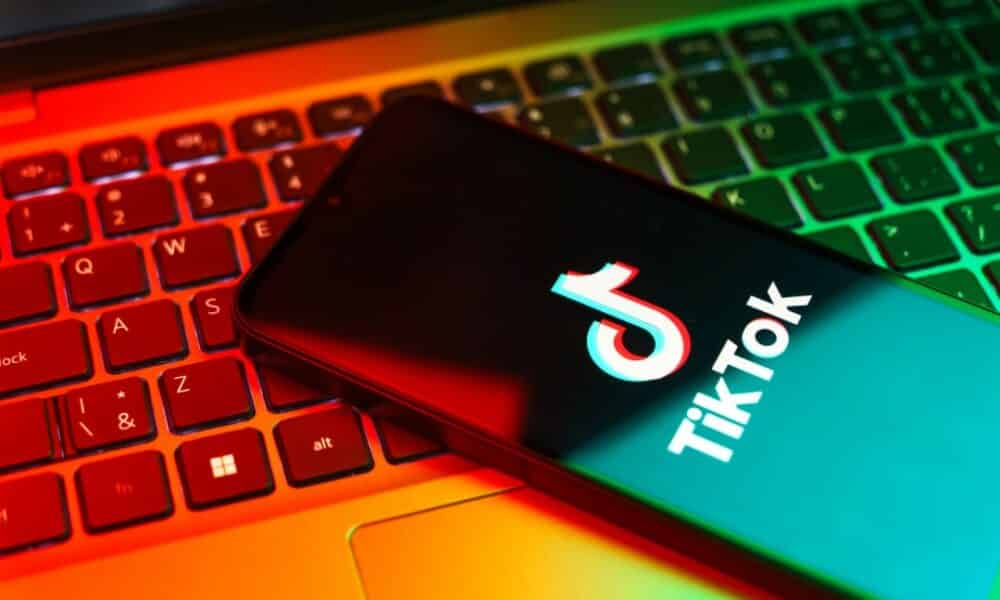US Supreme Court confirms veto on TikTok without sale to American buyer; could be banned on Sunday
The future of TikTok in the United States has reached a critical turning point after the Supreme Court upheld a law requiring the platform to be sold to an American buyer. Otherwise, the app will be removed from digital stores and hosting services nationwide. This decision comes just two days before the legislation, known as the “Protecting Americans from Foreign Adversary Controlled Applications Act,” is set to take effect, following its approval in April 2024.
With over 170 million users in the U.S., TikTok has established itself as one of the world’s leading social media platforms. However, its ownership by the Chinese company ByteDance has raised serious national security concerns. The U.S. government argues that user data collected by TikTok could be accessed by the Chinese government, posing a significant threat to privacy and national sovereignty.
The Supreme Court determined that the ban does not violate First Amendment rights to free speech. The justices stated that the law serves a legitimate government interest and is narrowly tailored to minimize potential constitutional infringements. This ruling comes amid escalating tensions between the United States and China, affecting key areas such as technology and trade.
National security concerns and TikTok’s role
The U.S. government, represented by Solicitor General Elizabeth Prelogar, emphasized that TikTok poses tangible risks to national security. According to her, the platform’s algorithm could be manipulated to spread misinformation or influence public opinion. Moreover, the Chinese government could potentially access sensitive data collected by the app, including geolocation and behavioral patterns of millions of American users.
These concerns prompted the swift bipartisan approval of the divestiture law. Lawmakers stressed that foreign control over widely-used digital platforms is an unacceptable risk in an era of heightened geopolitical competition.
ByteDance’s position and TikTok’s legal battle
ByteDance and its legal representatives argue that the requirement to sell TikTok violates the constitutional rights of both the company and its users. They claim that the law is a veiled attempt at censorship, restricting access to a platform widely used for communication and self-expression.
Noel Francisco, ByteDance’s lead attorney in the case, stated that the legislation sets a dangerous precedent by allowing the government to restrict a platform based on allegations that, he argued, lack concrete evidence. He also pointed out that parts of TikTok’s source code and other critical intellectual property are located in China, complicating the sale.
Supreme Court ruling and legal challenges
The Supreme Court dismissed ByteDance’s arguments, ruling that national security concerns justify the measures imposed by Congress. The court also noted that the law was carefully crafted to withstand constitutional challenges, striking a balance between safeguarding national security and respecting individual rights.
The ruling underscored the Supreme Court’s conservative majority, which has historically favored legislation bolstering national security. Justices such as Clarence Thomas expressed skepticism regarding the argument that TikTok’s sale mandate constitutes a First Amendment violation.
Impact on users and the digital market
With over 170 million active users in the U.S. alone, TikTok has become an essential tool for communication, entertainment, and digital marketing. Its potential removal from U.S. app stores could significantly impact content creators, businesses, and advertisers relying on the platform as a primary engagement channel.
Experts argue that TikTok is more than just a social network; it is a cornerstone of the global digital ecosystem. Its removal would create a significant gap in the market, likely benefiting competing platforms such as Instagram Reels and YouTube Shorts.
Political and economic implications
The decision to ban TikTok comes at a sensitive time for U.S.-China relations. Chinese authorities have condemned the move, calling it an example of protectionism and political persecution. This development could exacerbate trade and technological tensions between the two largest global economies.
Domestically, the decision also polarizes political debate. While the Biden administration defends the action as essential for national security, critics see it as unnecessary government interference in the free market and individual freedoms.
Future scenarios and global impact
If TikTok fails to comply with the divestiture requirement, its absence from the U.S. market will have global repercussions. Companies worldwide may reconsider their security strategies and compliance with national regulations. Additionally, the decision could inspire other countries to adopt similar measures against foreign digital platforms, further fragmenting the digital market.

The future of TikTok in the United States has reached a critical turning point after the Supreme Court upheld a law requiring the platform to be sold to an American buyer. Otherwise, the app will be removed from digital stores and hosting services nationwide. This decision comes just two days before the legislation, known as the “Protecting Americans from Foreign Adversary Controlled Applications Act,” is set to take effect, following its approval in April 2024.
With over 170 million users in the U.S., TikTok has established itself as one of the world’s leading social media platforms. However, its ownership by the Chinese company ByteDance has raised serious national security concerns. The U.S. government argues that user data collected by TikTok could be accessed by the Chinese government, posing a significant threat to privacy and national sovereignty.
The Supreme Court determined that the ban does not violate First Amendment rights to free speech. The justices stated that the law serves a legitimate government interest and is narrowly tailored to minimize potential constitutional infringements. This ruling comes amid escalating tensions between the United States and China, affecting key areas such as technology and trade.
National security concerns and TikTok’s role
The U.S. government, represented by Solicitor General Elizabeth Prelogar, emphasized that TikTok poses tangible risks to national security. According to her, the platform’s algorithm could be manipulated to spread misinformation or influence public opinion. Moreover, the Chinese government could potentially access sensitive data collected by the app, including geolocation and behavioral patterns of millions of American users.
These concerns prompted the swift bipartisan approval of the divestiture law. Lawmakers stressed that foreign control over widely-used digital platforms is an unacceptable risk in an era of heightened geopolitical competition.
ByteDance’s position and TikTok’s legal battle
ByteDance and its legal representatives argue that the requirement to sell TikTok violates the constitutional rights of both the company and its users. They claim that the law is a veiled attempt at censorship, restricting access to a platform widely used for communication and self-expression.
Noel Francisco, ByteDance’s lead attorney in the case, stated that the legislation sets a dangerous precedent by allowing the government to restrict a platform based on allegations that, he argued, lack concrete evidence. He also pointed out that parts of TikTok’s source code and other critical intellectual property are located in China, complicating the sale.
Supreme Court ruling and legal challenges
The Supreme Court dismissed ByteDance’s arguments, ruling that national security concerns justify the measures imposed by Congress. The court also noted that the law was carefully crafted to withstand constitutional challenges, striking a balance between safeguarding national security and respecting individual rights.
The ruling underscored the Supreme Court’s conservative majority, which has historically favored legislation bolstering national security. Justices such as Clarence Thomas expressed skepticism regarding the argument that TikTok’s sale mandate constitutes a First Amendment violation.
Impact on users and the digital market
With over 170 million active users in the U.S. alone, TikTok has become an essential tool for communication, entertainment, and digital marketing. Its potential removal from U.S. app stores could significantly impact content creators, businesses, and advertisers relying on the platform as a primary engagement channel.
Experts argue that TikTok is more than just a social network; it is a cornerstone of the global digital ecosystem. Its removal would create a significant gap in the market, likely benefiting competing platforms such as Instagram Reels and YouTube Shorts.
Political and economic implications
The decision to ban TikTok comes at a sensitive time for U.S.-China relations. Chinese authorities have condemned the move, calling it an example of protectionism and political persecution. This development could exacerbate trade and technological tensions between the two largest global economies.
Domestically, the decision also polarizes political debate. While the Biden administration defends the action as essential for national security, critics see it as unnecessary government interference in the free market and individual freedoms.
Future scenarios and global impact
If TikTok fails to comply with the divestiture requirement, its absence from the U.S. market will have global repercussions. Companies worldwide may reconsider their security strategies and compliance with national regulations. Additionally, the decision could inspire other countries to adopt similar measures against foreign digital platforms, further fragmenting the digital market.











Post Comment